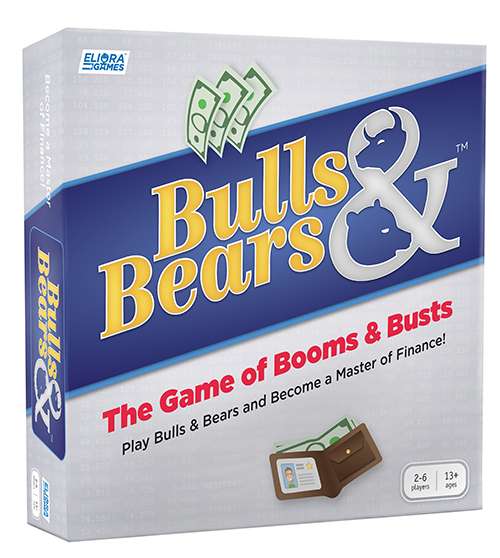Bulls and Bears

As in Monopoly, which it resembles in some ways, accumulating wealth is the goal of the board game Bulls and Bears. Refreshingly, this new entrant in the increasingly vibrant board game market is not a zero-sum game. The rules encourage all players to succeed through buying and selling, without forcing them to bankrupt their opponents. In other words, it's a more realistic, less harsh and condemnatory take on how markets actually work.
Players earn a salary for each lap around the board and use the income to buy stocks and bonds. Periodic "News Flash" cards trigger shifts in asset prices, and responding with timely trades is the best way to build wealth. The first player to double his or her money—while paying off a mortgage and funding insurance premiums—wins.
If that sounds a little too real, well, that's the point. Manufacturer Eliora Games pitches Bulls and Bears as an introduction to the workings of the stock market and the importance of financial acumen.
It's quite robust for a board game simulation of the stock market, but the format has certain shortcomings. Because there are no transaction costs (such as broker fees or capital gains taxes), players are encouraged to move their money as often as possible, chasing big windfalls or avoiding short-term losses. If only investing were so easy.
